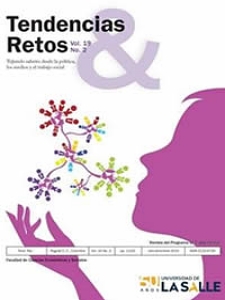Abstract
The article presents the emotional, family, and social characteristics present in children and adolescents at risk of labor exploitation (studying at educational institutions in the area of the Bazurto market, Cartagena), while identifying to what degree the family has an influence on this social issue. The research contributes to the training and integration of agents from the field of social and human sciences in the areas of community involvement and social management. This is where the community is educated and sensitized concerning the problem of child labor. Regarding the methodology, the project is based on the processes of emotional intelligence developed by Fernández-Berrocal’s team, using the Trait Meta-Mood Scale-24 (TMMS 24) instrument, which is an adaptation of three dimensions: perception, understanding, and emotional regulation. For this reason, a descriptive-statistical-quantitative design was developed that presents the scores children and adolescents obtained in various areas of emotional intelligence.Downloads
Download data is not yet available.



